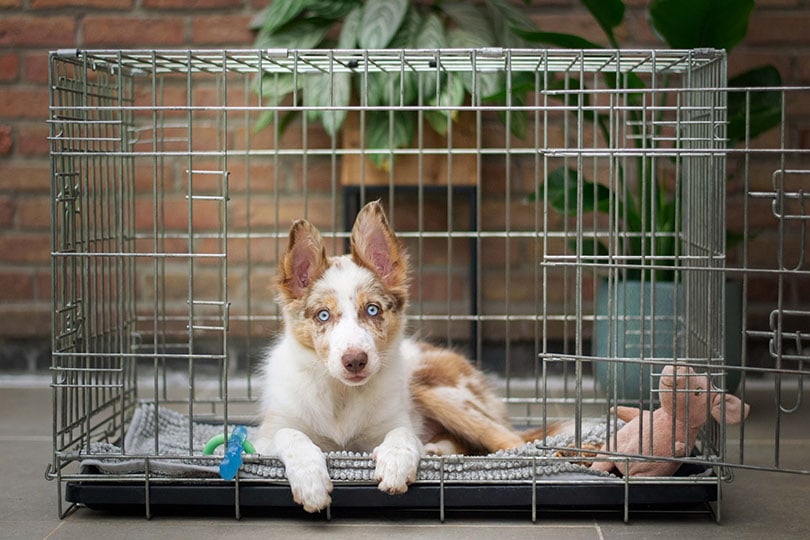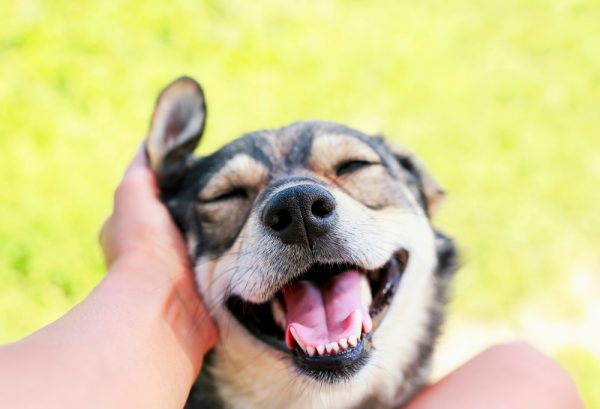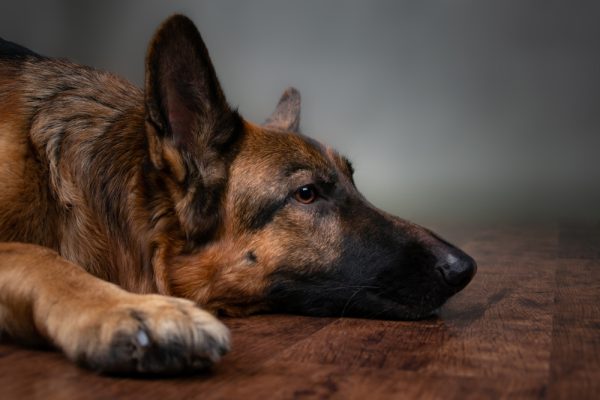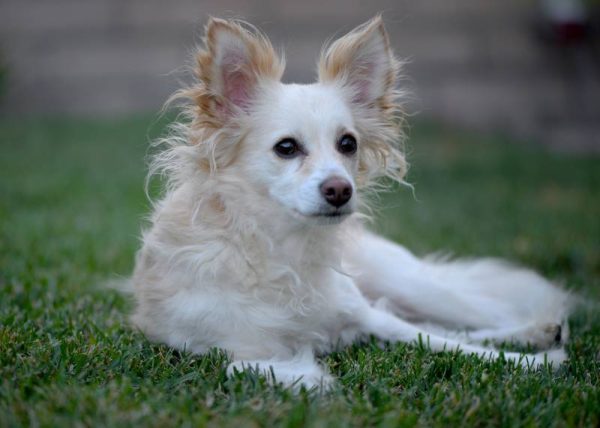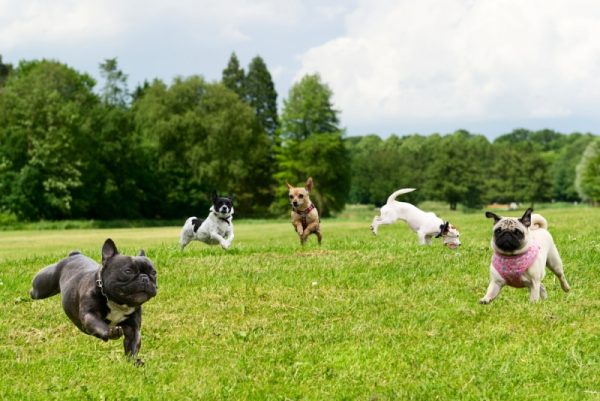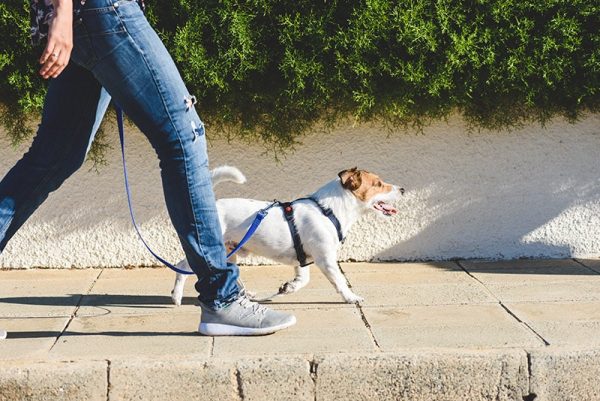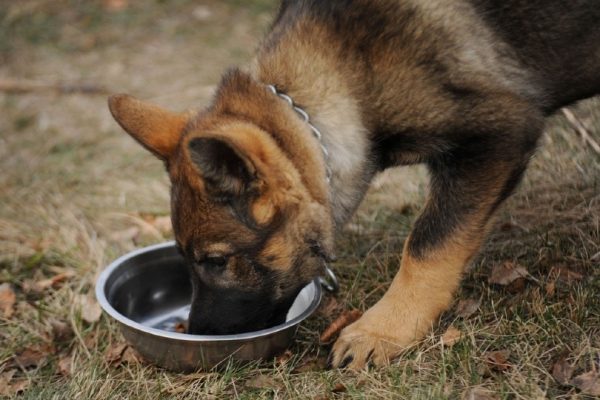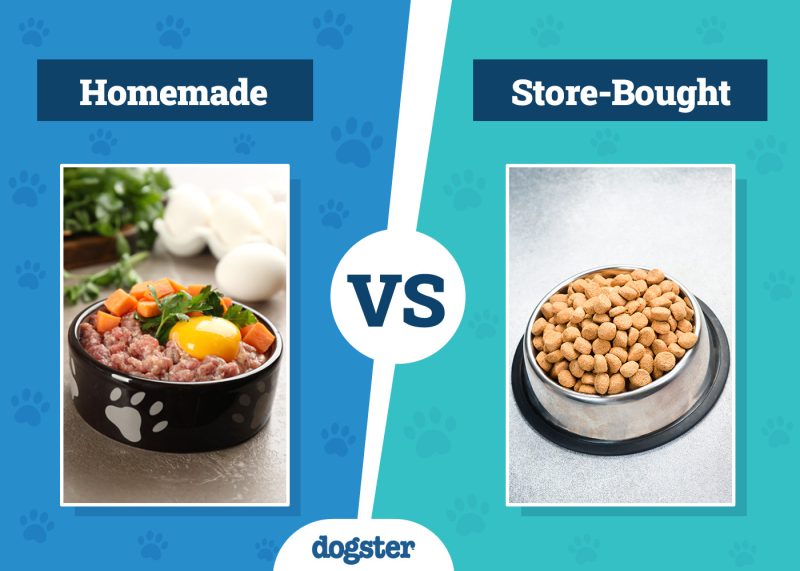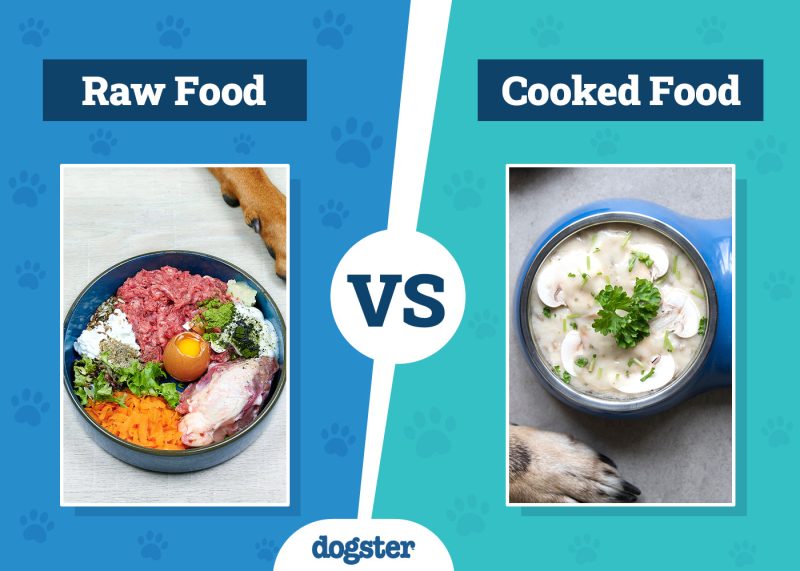If your dog spends time in a crate on a regular basis, you want it to be someplace that is clean, safe, and comfortable. But some dogs don’t seem to agree with that philosophy. Frequent pooping in his crate might be a sign that something is wrong with your dog, and it’s definitely something that should be corrected if possible. Here are 10 possible reasons why your dog might be pooping in his crate, along with solutions to consider.

The 10 Possible Reasons Your Dog Is Pooping in Their Crate
1. Potty Training Is Incomplete
One of the biggest reasons dogs might not keep their crate clean is a lack of proper training. Puppies need training to avoid accidents inside the house, and if your dog didn’t get the training it may take some time to rework it. Praise your dog for defecating outside and give him frequent opportunities to relieve himself. If your dog frequently has accidents inside, working with a trainer can help resolve the issue.
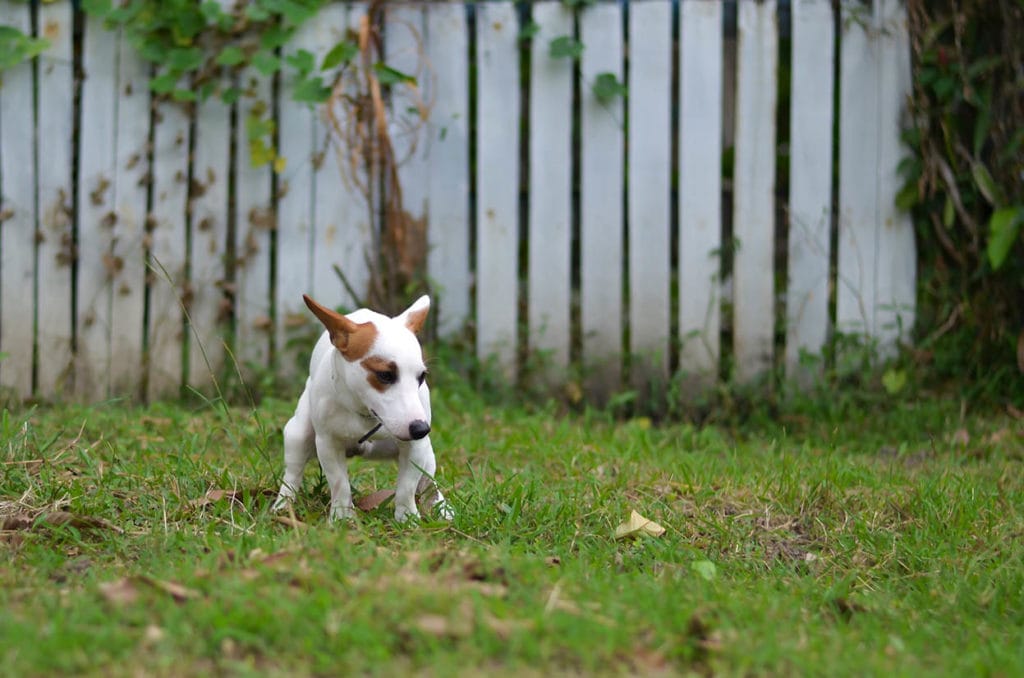
2. Your Dog Is Left Alone Too Long
Dogs have their limits just like everyone else. If you were going on a 12-hour road trip, you’d stop for a bathroom break at some point, but many people forget that their dog can’t just hold it forever. Puppies and older dogs are especially likely to need multiple bathroom breaks a day.
If you have to leave your dog alone for long periods of time, consider changing your strategy. For example, instead of leaving him in his crate while you’re at work, leave him in a dog-proof room with a pee pad available. If nothing else works, a doggy daycare, dog walker, or similar service might be a better choice than leaving your dog at home.
3. The Crate Isn’t Properly Sized
You might think that your dog needs plenty of space to be happy, but dog crates that are too big can cause accidents and make your dog less comfortable. Your dog should have room to turn around and lie down comfortably, and to stand up without having to stoop. But much more room than that could make your dog feel exposed. Having limited floor space also stops accidents from happening because your dog won’t want to poop in the place he needs to lie down.
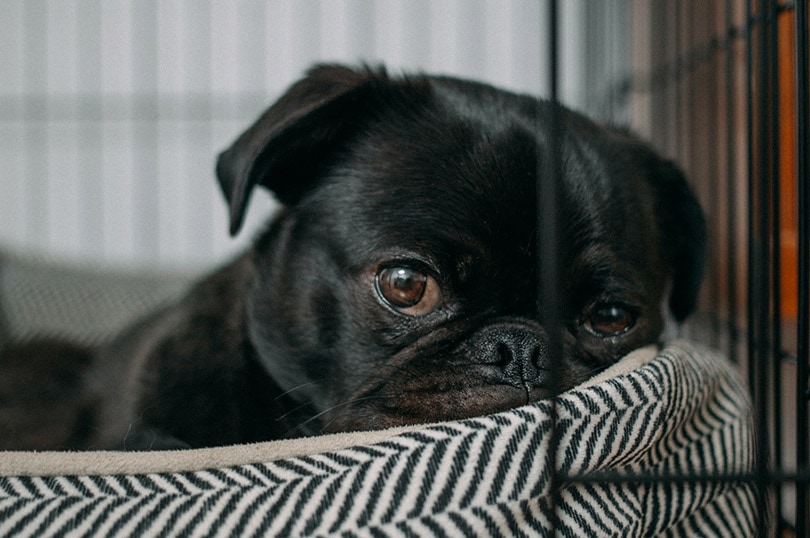
4. Stress or Separation Anxiety
If your dog hates being in his crate or can’t stand being separated from you, pooping might be a reaction to stress. Some dogs will purposefully soil their crates if you leave them locked up while you are home because they know that you’ll come to get them out. Other dogs lose bowel control because they are anxious. You can work to make your dog more comfortable while inside the crate or try other solutions to help the crate be less scary. You can also give your dog lots of love and attention inside and outside of the crate.
5. Disease
There are many different diseases that lead to less bowel control. Something as simple as food poisoning might lead to your pup having an uncharacteristic accident. Inflammatory bowel disease can lead to an inability to control bowels as well. Another possibility is a muscle or nerve disease that stops your dog from being able to hold muscles over long periods of time. A disease like this will likely have other symptoms. Meeting with a vet can help you find a good treatment.
Another possibility is an infection. Infections can lead to diarrhea, lack of bowel control, and other changes that make your dog poop in his crate.
If you need to speak with a vet but can't get to one, head over to PangoVet. It's our online service where you can talk to a vet online and get the advice you need for your pet — all at an affordable price!
6. Food Sensitivities
If your dog has stinky, unusual poop and shows other signs of gastrointestinal distress, you might have a dog with undiagnosed allergies or intolerances. Some common allergens include corn, wheat, soy, and various types of meat. Dogs are also lactose intolerant, so many dairy products are no-goes. A change of food or a diet meant for sensitive stomachs can help your dog recover from gastrointestinal issues.
7. Injury or Physical Trauma
Physical trauma can also lead to incontinence. An accident can damage the muscles that control your dog’s sphincter, making it impossible for your dog to function properly. If this is the case, your dog will likely have frequent accidents both in and out of his crate and poop much more frequently than before the injury.
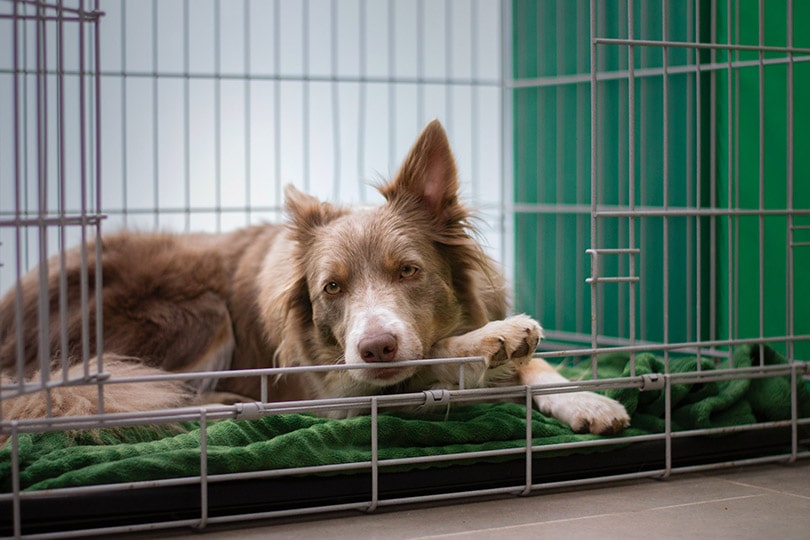
8. A Tumor
Cancer is no joke, and tumors can cause knots of tissue that interfere with your dog’s gastrointestinal tract. A tumor near the sphincter is the most common culprit when it comes to tumors, but other places around the gastrointestinal tract might cause problems as well. Regular vet checkups can help you catch tumors quickly before they interfere with your dog’s health in worse ways.
9. Medications That Interfere With Bowel Control
Some medications have incontinence, more frequent defecation, and other bowel problems as side effects. If your dog has recently been put on a new medication, there’s a good chance that this is the cause of your dog’s issues. A change in medication might be possible, but as always you need to weigh the inconvenience and frustration of one side effect against the alternatives to make the best choice for you and your dog.
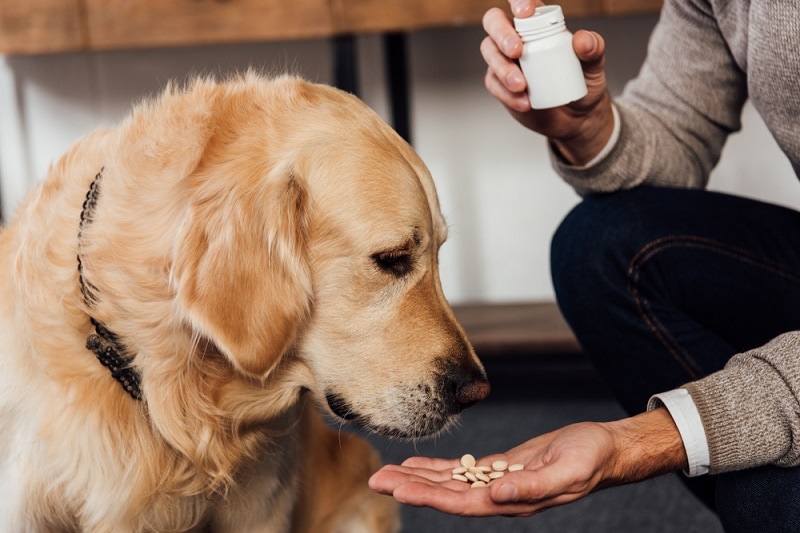
10. Incontinence With Aging
Finally, if your dog is getting on in years, it’s possible that his digestive tract is just wearing out. Older dogs are often unable to hold in bowel movements for long periods of time. Even if there isn’t a specific medical cause behind it, incontinence becomes more common as dogs get older. In some cases, veterinary treatments can help minimize incontinence, but you might also need to accept that part of caring for a senior dog is dealing with the occasional accident and planning around it.

Conclusion
As you can see, there’s no one cause of a dog pooping in their crate, and that means there isn’t one solution either. Working to find the best solution for frequent defecation can take some time and effort, but most dogs who poop in their crate can have their behavior changed if approached correctly. After all, no dog wants to sit in a mess!
Featured Image Credit: Ayla Verschueren, Unsplash

